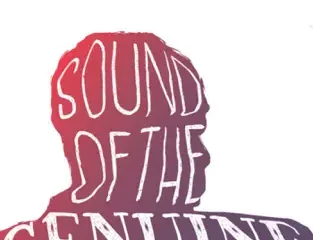As a white parent, I struggle with how to talk about the racialized history of our society with my white children. From the history of Thanksgiving to the events in Ferguson (and so many other cities), I wonder what I can say to my children that won’t be yet another soundbyte or value free explanation of the facts. In an effort to respond to racism, white children are often taught to celebrate other racial groups (multiculturalism) while simultaneously being told that race doesn’t matter (colorblindness). At best this is confusing, at worst it silences questions and leaves children without education on how to combat racism.
One step we can all take this week is to stop celebrating Thanksgiving with detachment from the long history of American Indians(1) in North America. By “we” I mean those of us with enough food to share a meal, enough money to travel or open our homes, and enough privilege to forget that racial history determines present lives. We often try to transform the shady history of this holiday by focusing on the “best” aspects of the story. While hospitality and gratitude should and probably are redeeming qualities of Thanksgiving celebrations, they don’t come cheap! They require significant work and transformation that uncovers privilege.
Christian forms of hospitality and gratitude as modeled by Jesus come in the form of radical acts against the status quo. He eats with outcasts, talks with and invites women into ministry, goes to the stranger, and welcomes children (just to name a few). Jesus shares his power providing healing miracles to those forgotten by society. Each time we remember the last supper in worship, we are told that Jesus “gave thanks.” For what? Food, friends, the opportunity for a short while on earth to show people what God really calls us to? Hospitality and gratitude should be uncomfortable actions that call us to recognize our privilege, get out of our comfort zone, and make a change.
This week in U.S. history marks a particularly poignant time. As news stories cover protests in response to no indictment charges in the death of Michael Brown and we sit at table to celebrate a history of American Indians and colonial relations, our actions of hospitality and gratitude need to expand. As Rev. Dr. Javier Viera, Dean of Drew Theological School told our community yesterday in response to events in Ferguson,
Anger has to be understood historically, and we can’t simply try to make sense of it episodically. It is a position of privilege to want to isolate individual events and insist that they be judged solely on their particularities. But we know from our own personal relationships that this is never easily or accurately achieved.
Dealing with racialized history as episodic is one way we “clean it up.” We must talk about more than just a single event to begin to understand the whole story.
When I talk with my children about the protests supporting and remembering Michael Brown, we also talk about how racism and poverty shape the lives of many in Ferguson and how racism related to Blacks in the United States begins with the institution of slavery. Situating events historically is not meant to clear up guilt or innocence; rather the point is to complicate it. When I talk with my children about Thanksgiving, we also talk about the Native Americans who used to live on the land we now own in Connecticut and how that land was stolen so European colonialists could settle a town. We learn about the Quinnipiacs, Mattabessets, Pequots, and Mohegans. Learning the history of how racial groups (negros, blacks, indians) were created by the colonialists is one step in questioning our current structures of race and admitting that race still matters in our everyday lives. It also demonstrates that being white has a history. Not many of us like to admit, but it’s one we need to know if we plan to combat racism.
Some will say children can’t handle histories about how people died and had their lands stolen because it is too graphic and scary. To that I say: Consider which children in the world get to the privilege of avoiding these stories. Consider what your children play on video games, watch in the movie theater, or read in books. Violence that is told in “story” form is no less violence. As parents, pastors, and educators, I suspect we can craft age and ability appropriate responses. If we want to create a world where kids can authentically participate in hospitality and gratitude, children need to know why these are important Christian practices and how difficult it has been historically to achieve them from moments of everyday living to geopolitics.
(1) I have chosen to use the term American Indian to remind the reader of the history of colonization and the creation of a falsely monolithic term for peoples who come from many different tribes and regions. See “I am an American Indian, Not a Native American” by Russell Means, 1998, at http://compusci.com/indian/.
Reposted from TheThoughtfulChristian.com blog at Gathering Voices.

